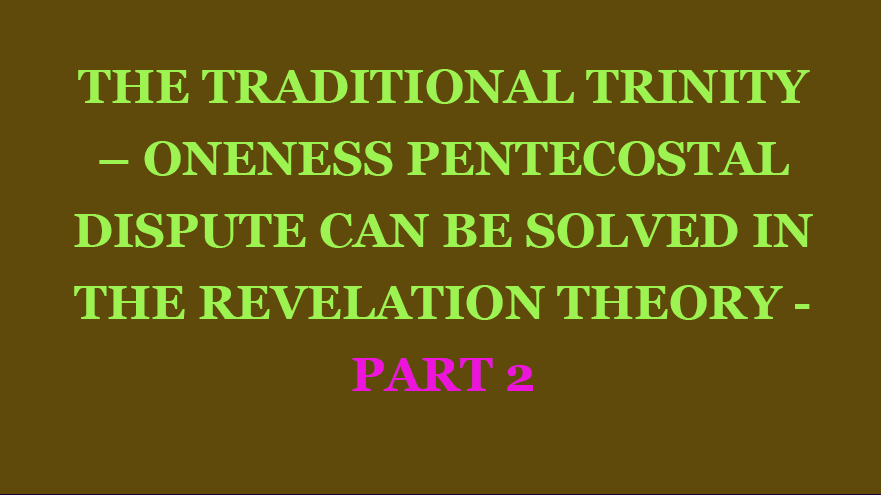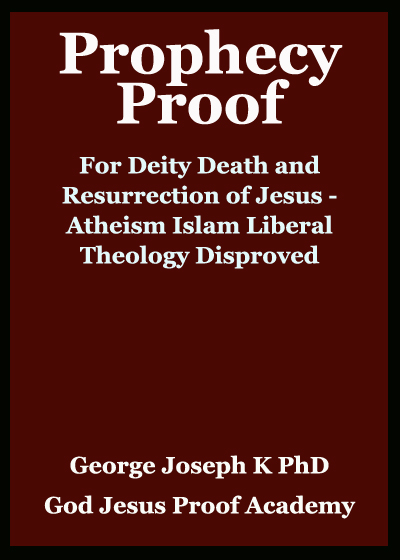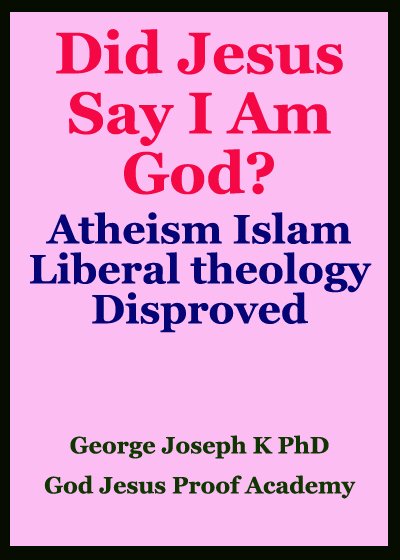
THE TRADITIONAL TRINITY – ONENESS PENTECOSTAL DISPUTE CAN BE SOLVED IN THE REVELATION THEORY PART 2
THE ERRORS OF MODALISM AND ONENESS PENTECOSTALISM ON TRINITY
Modalism is also non-trinitarian. While both Modalism and Unitarianism are non-Trinitarian, modalism affirm the deity of Christ. Modalism teaches that Father, Son, and Holy Spirit are three modes of existence for the One God. Modalism is found today in the United Pentecostal Church, Oneness Pentecostalism, Jesus Only etc.
There are some non-trinitarians who, while holding God to be a single person, perceive Jesus to be God himself. Oneness Pentecostalism, comes in this category. Sabellianism or modalism is not wrong in focusing on the oneness of God. But they go wrong in their failure to admit the distinctness of Father, Son and Holy Spirit. Sabellius lived around A.D. 200. He understood Father, Son, and Holy Spirit as no more than three manifestations of one God. This teaching came to be known as modalism, because it views one God who variously manifests Himself in three modes of existence such as, Father, Son, and Holy Spirit. Furthermore, they also fail to distinguish between God and the Father.
The error of oneness Pentecostalism is that they do violence to the Scripture by denying the clear verses on trinity. The Bible indeed teaches the existence of only one God (Deut. 6:4). The Bible teaches that the one God during the Biblical creative and redemptive age revealed as three separate and distinct persons of the Father, Son, and Holy Spirit. Colossians chapter 2, verse 9 does not teach that the totality of the Godhead was in the body of Jesus, but rather that Jesus embodied the totality of the divine nature and God is totally revealed in Him.
The Jesus only focus is to eliminate and exclude the revealed identity of Father and Holy Spirit. The Jesus which excludes the Father and Holy Spirit could be another Jesus. The Oneness people try to solve the trinity issue by denying the simultaneous existence of the distinct separate God persons. They just claim all is one and all is same. They fail to adequately account for the existence of the separate God persons and accuse those who recognize the reality of separate God persons of polytheism.
The weakness of the oneness group is in accounting for the plurality of the God persons. The Oneness people try to affirm the oneness of God by denying the simultaneous existence of the distinct personal revelations of God. The Oneness people have the unrealistic approach of considering the different God persons distinctively, yet do not accept them as separate persons, in this age. They just say it is all one God, but fail to explain how it is. But when the Trinitarians try to explain it the Oneness people accuse the trinitarians of polytheism.
The Trinitarians clearly state that there is only one God, and that 3 persons are not 3 Gods. But the oneness people push the trinitarians to admit that these 3 persons as 3 gods, and accuse the trinitarians of polytheism. Specifically, they mark out Father and Son as 2 different gods to attack the Trinitarians based on Jn chapter 3, verses 16 and 17. This is opportunism and escapism of the oneness. But it should be noticed that, the Oneness people in some sense admit the similar personal revelations of God. They have already talked about Elohim, Jesus and Holy Spirit as personal revelations of the Father, who is the only true God. But they fail to explain how or in what sense they are distinct, and how long they remain distinct.
When the trinitarians admit and explain distinctions, the oneness people accuse them of polytheism. But the oneness people try to escape such polytheism by simply saying that the revelations are all one and the same God. They make this claim by neglecting the essential details about the clear distinctions among the revelation persons in the Bible. Hence, if we apply to the ONENESS the method, which they themselves use for accusing the Trinitarians of polytheism, the oneness will be more polytheistic than the trinitarians. Because, they talk about 4 god persons such as Father, Elohim, Jesus and Holy Spirit. They cannot make distinctions of the God persons. They cannot accept them as they are. But if we explain the Biblical details, they attack it as polytheism. This is the Oneness suppression of the truth in the Bible.
Some oneness people even explain that EL God took the form of an angel called Jesus. Then, that angel came as a man. And on the cross only the human or the creation side of Jesus died. And later in heaven Jesus and Holy Spirit will gradually cease to exist. But the Bible clearly says that Jesus is greater than the angels, and that it is the Son who came as a man. Some oneness people, based on Ps 82 even argue that there is a new category of angels called Elohim. But Jn chapter 10, verse 34 disproves their argument. This Elohim can be a reference term to angels but not a group of angels in the category of man, and in whose image, man is to be created. Hence in this argument also the Oneness group go wrong.
The oneness group people also try to explain away the plurality in the God revelation in the book of Genesis, contained in the phrase – let us create. It cannot be argued that in the beginning the Elohim angels and God together created the world. Because in that case the verb used must have been plural. But the verb is singular and the subject is uniquely plural. Moreover, there is no verse in the Bible which says, God created Elohim angels in God’s image so that God and Elohim angels have a common image after which, in their collective image, man is created. Because, God cannot say, IN OUR IMAGE, unless the Elohim angels are already in the image of God. The fact is that, in order to explain the plurality of God revelation in the book of Genesis, there is no need of inventing the non-existing Elohim angels. Because, the word ELOHIM itself is plural consisting of 3 YEHOVAH persons, accounting for the trinity in the Old Testament.
When the Oneness group claims that Jesus is the Father, they deny Jesus and dangerously violate first John chapter 2, verse 23 which says: Whosoever denies the Son, the same hath not the Father: he that acknowledges the Son hath the Father also. Moreover, the statement: I and the Father are one, clearly implies 2 persons. Because Jesus was not saying I AM THE FATHER, in which case there is no option for 2 persons. Thus, neglecting the clear evidence for trinity can be done only by deliberate misinterpretation of the Bible.



